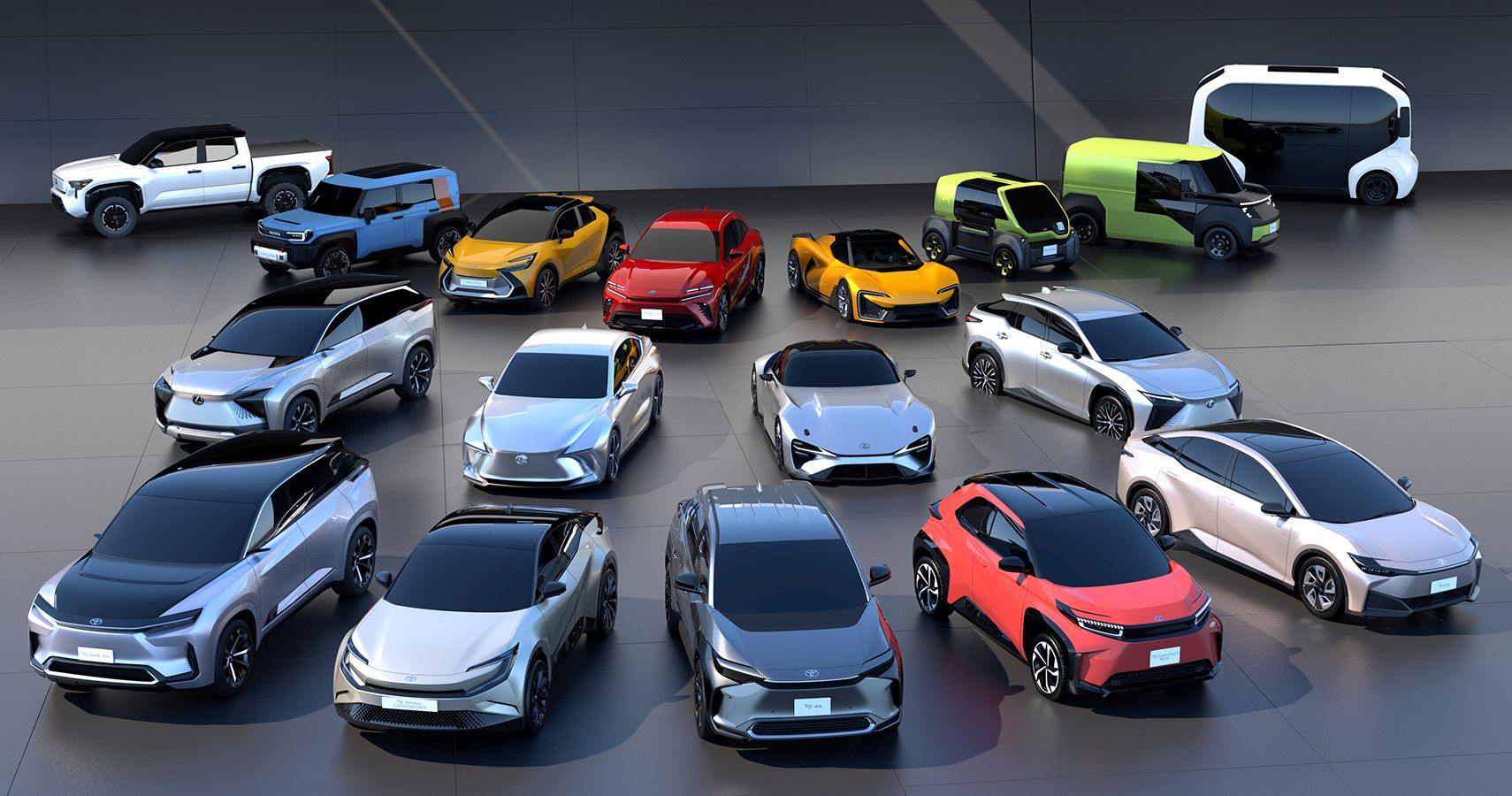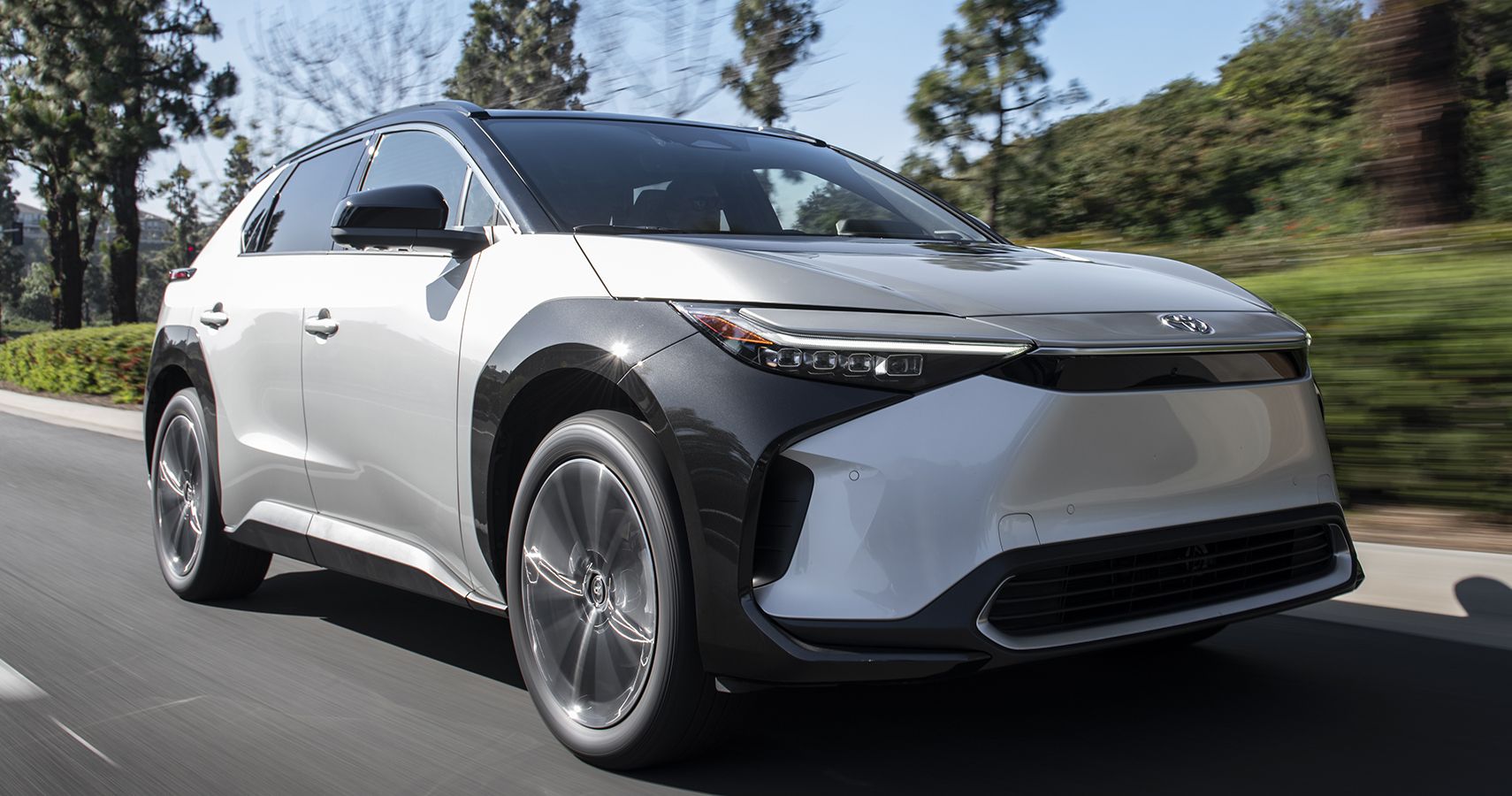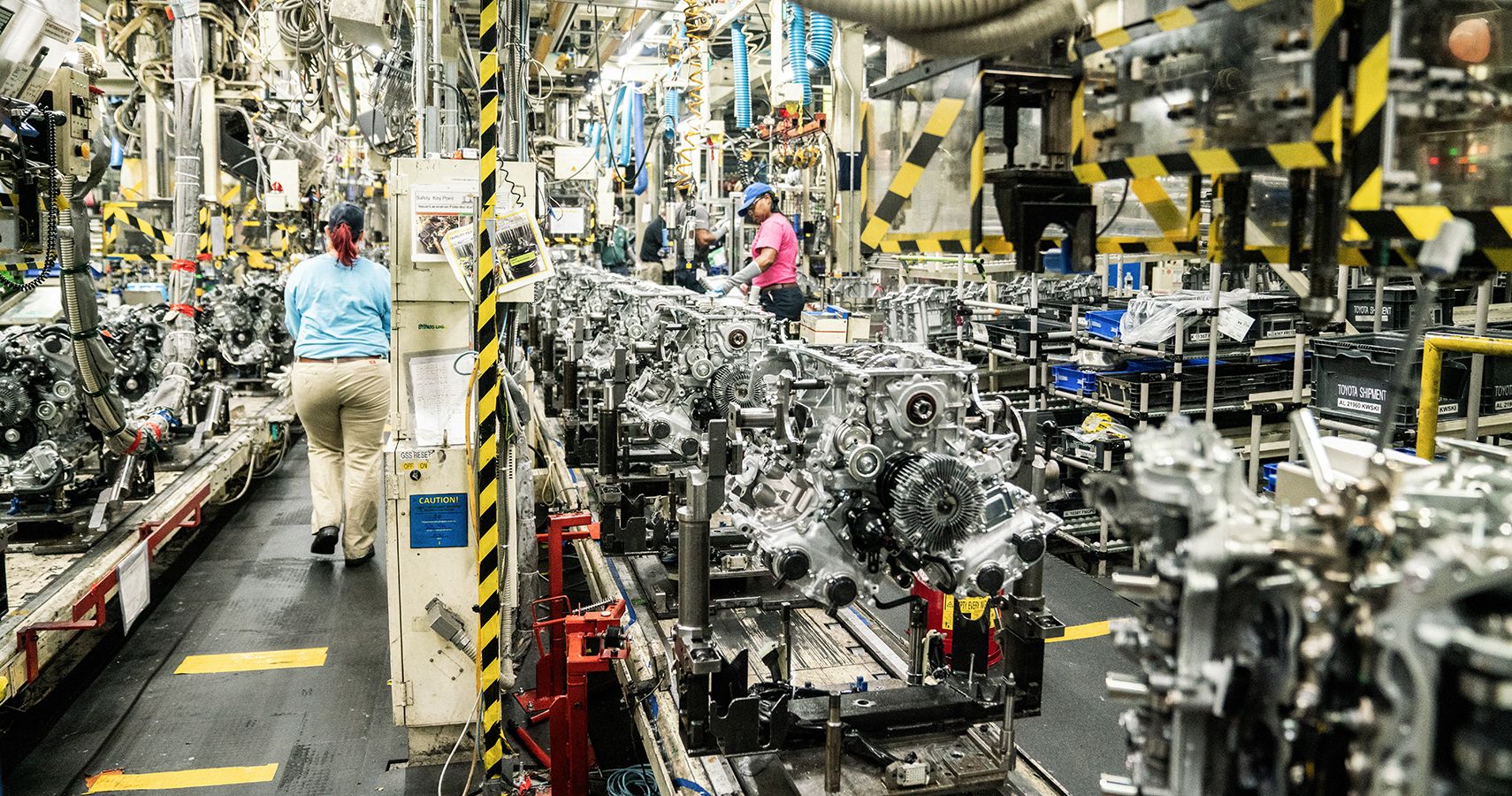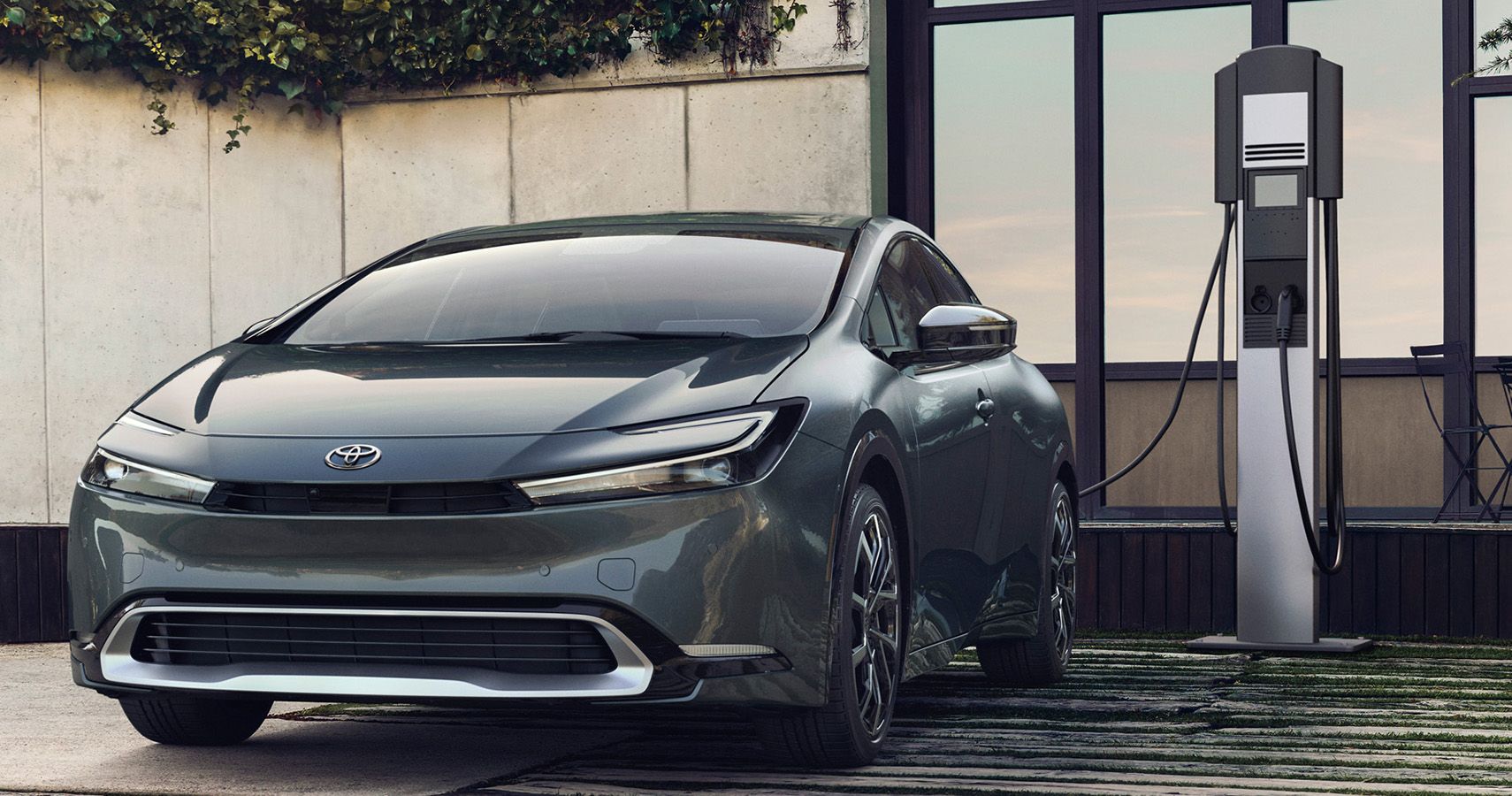Most companies in the automotive world are racing to go electric. For instance, General Motors, Ford, and even Stellantis are trying to outdo each other to offer relevant electric vehicles by the next decade. Even brands known for their powerful combustion engines such as Dodge are joining the electrification race as well. For them, EVs define the future of the auto industry.
On the front, the reasons could be future sustainability and green image, as companies declare intentions to be carbon-neutral in the mid-century. Nevertheless, the underlying reason is still sales and profit, as these companies think no one would buy internal combustion engine vehicles in the future, with laws and regulations rewarding green companies and punishing non-green ones.
While most carmakers are becoming more aggressive toward EVs, there is one company that is taking a cautious approach. Interestingly, this company is one of the largest carmakers in the world and has enough clout to gamble on EVs – Toyota.
Toyota is investing a lot of money in its EV push. But the Japanese carmaker seems the odd guy in a world heading towards electrification, as it offers hybrids and the hydrogen fuel cell-powered 2022 Toyota Mirai. Nevertheless, its cautious approach to EVs could be the smarter move for the future.
Toyota To Achieve Carbon Neutrality Through Electrification
Toyota has never been clear about its intentions toward achieving carbon neutrality. It doesn’t want to rely on a single approach on this matter. Toyota initially announced its intention to join the battery EV (BEV) melee, with the new Bz4x on the forefront. Nevertheless, the Japanese carmaker is continuing its other electrification efforts such as its hydrogen fuel cell EVs (FCEV), hybrid EVs (HEV), and plug-in hybrid EVs (PHEV).
Interestingly, the company had a reputation for focusing on other electrified models, which makes people wonder why Toyota has no electric vehicles. Company president Akio Toyoda had a simple answer to this enigma – he wasn’t really interested in the carmaker’s previous BEVs. Toyota’s apparent refusal to build EVs may have made its rivals happy, as they have one less major carmaker to worry about.
But unknown to the public, Toyota was silently working on new BEVs. The carmaker suddenly unveiled the bZ series of dedicated battery EVs, with the letters referring to “beyond Zero.” According to Toyota, its goal for its BEVs isn’t just to reduce carbon dioxide emissions and other negative impacts to zero, but also to meet the diverse needs of the global market.
Furthermore, the carmaker unveiled 16 Toyota and Lexus BEV models that it would launch in the market, starting with the all-new Toyota bZ4X in 2023. The bigger plan is to launch 30 BEV models and sell 3.5 million BEVs globally by 2030.
Toyota Is Still Into Its Multi-Prong Approach
Nevertheless, the recent unveiling of the new Toyota and Lexus BEV doesn’t mean that the Japanese car is changing its multi-prong policy and is shifting to focus on BEVs. Toyota is still exploring various options to achieve carbon neutrality by 2050. To demonstrate Toyota’s strong intentions hinged on a multi-prong approach, Toyoda even became “Morizo” and drove a hydrogen-powered vehicle in Super Taikyu Series races.
In addition, Toyota is still relentless in unveiling new or upgraded HEVs and PHEVs. Many of its current nameplates have hybrid counterparts, the newest of which feature Toyota’s fifth-gen hybrid powertrain with a larger lithium-ion battery. Just in November 2022 at the Los Angeles Auto Show, Toyota revealed to the North American public its all-new 2023 Prius and Prius Prime.
Moreover, the carmaker continues to develop its electrified vehicles in other ways, such as motorsports. In fact, Toyota’s hybrid system has been present in electrified vehicles competing in the 24 Hours of Le Mans and the WEC (FIA World Endurance Championship).
Amazingly, Toyota is investing $383 million into its Alabama, Kentucky, Missouri, and Tennessee plants to support the production of highly efficient four-cylinder engines, including options for hybrid units. The bulk of this amount will go into Toyota Alabama to build a new four-cylinder production line for both combustion and hybrid electric powertrains.
Helping Customers Transition To A Carbon-Neutral Future
Unlike other carmakers, Toyota isn’t going all out for BEVs. The carmaker wanted to bring in a mix of approaches not because it foresees BEVs as a possible failure, but because being cautious could ensure a future that doesn’t limit the options for customers. Nevertheless, with the technology it now has, Toyota has included BEVs as one of its approaches.
While the Japanese carmaker wanted to increase its carbon-neutral vehicles as much as possible, with a baseline toward 2030, it admits that energy situations in each country greatly affect the path to carbon neutrality, and this is Toyota cannot control. Expanding its EV offerings without offering other options might result in inconvenience to customers.
Since the best solution for many isn’t necessarily the best for everyone, having diverse solutions might be the way. A multi-prong approach would be a very smart move, as this would allow Toyota to fill various needs, not just for a particular market. By offerings pure electric cars, hybrids, and fuel cell vehicles, the carmaker can cater to different customers, helping them change their thinking about carbon neutrality.
For Toyota, the challenge isn’t what to offer to customers, but to help them accept a sustainable future.
Source: Toyota




